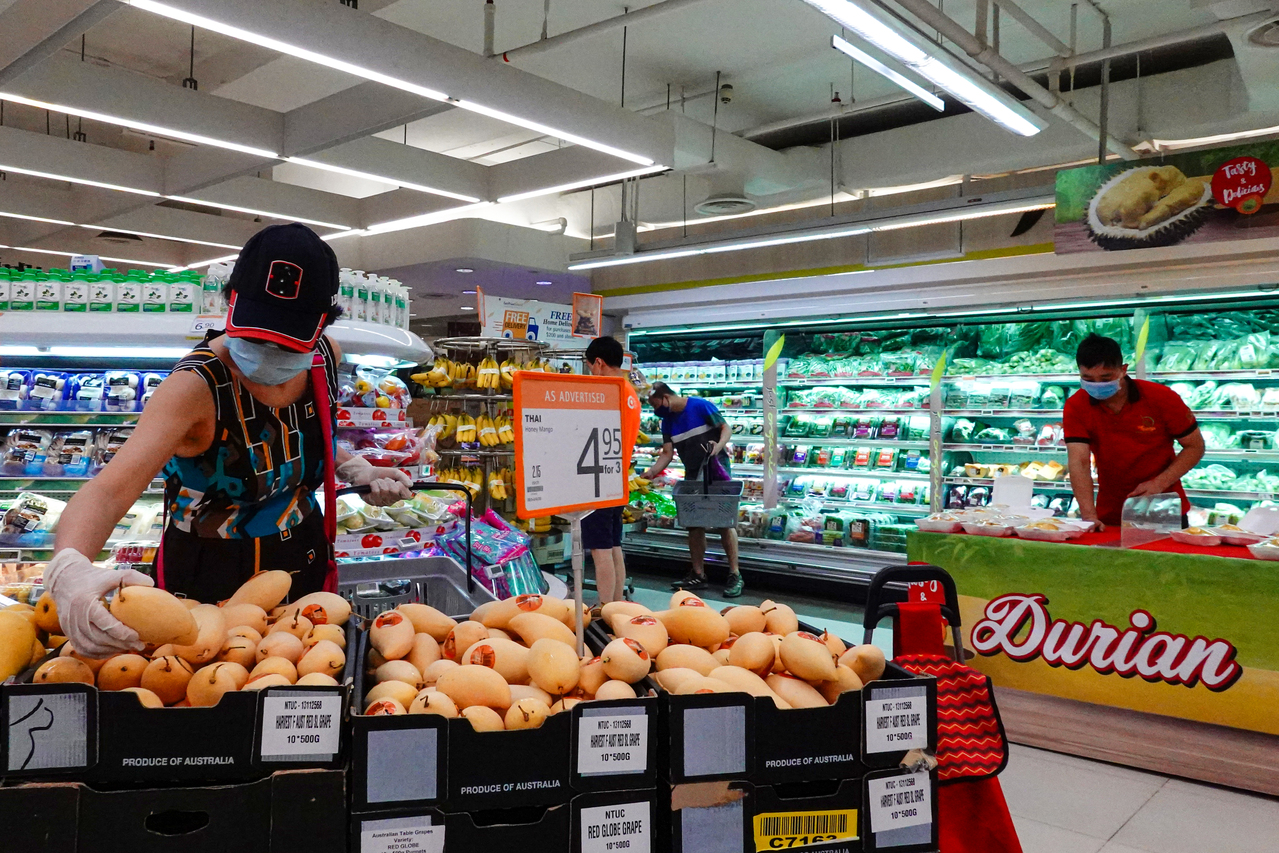Singapore core and overall inflation weaken in October
Sign up now: Get ST's newsletters delivered to your inbox

Food prices rose at a slower rate of 1.7 per cent in October, down slightly from the 1.8 per cent recorded in September.
ST PHOTO: LIM YAOHUI
SINGAPORE - Core and overall inflation both declined in October, continuing Singapore's deflationary trend of previous months.
Core inflation, which excludes accommodation and private road transport costs, came in at -0.2 per cent year on year in October, slightly below the -0.1 per cent seen the previous month, according to data released by the Monetary Authority of Singapore (MAS) and the Ministry of Trade and Industry (MTI) on Monday (Nov 23).
This was due to steeper declines in the costs of services, retail and other goods, as well as lower food inflation.
On a year-on-year basis, core inflation has declined for nine straight months.
Overall inflation dipped to -0.2 per cent year on year in October, down from zero the previous month, on the back of a sharper drop in private transport costs, lower accommodation inflation, and the fall in core consumer prices.
Private transport costs fell more steeply in October, dropping 1.3 per cent compared with 0.1 per cent the previous month, as car prices rose at a more gradual pace amid a sharper decline in fuel costs.
Food prices rose at a slower rate of 1.7 per cent in October, down slightly from the 1.8 per cent recorded in September, as the prices of non-cooked food rose at a more moderate pace.
Services costs decreased more quickly at 0.5 per cent year on year, compared with 0.1 per cent in September, due to lower telecommunication services inflation and a larger decline in tuition and other fees.
Electricity and gas costs fell 7.2 per cent in October, compared with a 14.2 per cent decline the previous month, due to upward revisions in electricity and gas tariffs.
In its report, MAS and MTI said that external inflation is likely to remain low amid weak demand conditions in key commodity markets and the persistence of negative output gaps in Singapore's major trading partners.
Cost pressures are also expected to stay subdued locally, with the accumulated slack in the labour market dampening wages.
However, core inflation is forecast to turn "mildly positive" in 2021, with demand for some domestic services gradually picking up and the disinflationary effects of government subsidies introduced in 2020 fading.
Accommodation costs are expected to fall due partly to the decline in foreign employment here, while private transport costs are predicted to rise slightly amid an anticipated reduction in the supply of Certificates of Entitlement in 2021.
In the report, MAS and MTI reiterated their core and overall inflation forecast of between -0.5 and 0 per cent in 2020.
Core inflation is predicted to average 0 to 1 per cent in 2021, while overall consumer inflation is projected to come in between -0.5 and 0.5 per cent.


